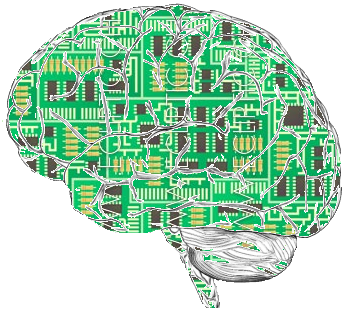.jpg) |
| Wiki Creative Commons |
This idea is still in its infancy, but I wanted to get it up here before it gets carried away in the busy of life. Recently, I've been studying Immanuel Kant's Critique of Pure Reason, and that's got me thinking about the imagination as a creative entity. Kant's overarching idea is that reality is founded in the imaginative representation rather than in actual substance--that the world is really just a series of relationships that exist between the mind and the body and that the world is thus, in some sense contained within each individual. This has lots of implications, but the quick and dirty summation is that as a result, human beings are, at least in Kant's view, entirely autonomous and actually construct their worlds (actively and passively) through the associations that their imagination makes with objects and ideas in the world around them.
Well, your question now is maybe something like, "What does any of this have to do with virtual reality?" Well, I would say that Kant's model of the world is, in fact, a virtual one. Does an object exist for us because it actually exists or because we perceive its existence? Is something really present within our world if we have no knowledge of it, having never experienced it? For Kant, that answer is no. We create our own worlds, and these worlds are found within our minds. What if, though, there were a way of extracting those worlds and depicting them in a way that was accessible to other people? That's where digital worlds come into play. In a very real sense, digital or virtual worlds become the real-life manifestations of the imaginative representations of the mind. Makers of these virtual worlds create them as explorations of ideas and objects within our own real existence, so these digital spheres become, in effect, real-life extensions of the symbolic or semiotic relationships that exist within our minds as pertaining to the real world. This is all rather convoluted and likely doesn't make a ton of sense right now, but I guess what I'm getting at is that these virtual worlds that we are creating are simply extensions of the human mind, brought into a manipulable interface.
In short, just as the computer, with its electrical impulses and 'memory,' serves as a symbolic or external brain, these digital worlds, in their exploration of new premises and relationships, become the projection of the human mind into artificial brains. Does that sort of make sense? Do you agree?


I think it makes a lot of sense that digital worlds are an extension of the human mind. We create the machine and tell it how to think, so we are essentially copying and transferring the information in our minds to this other medium and that information can be manifested and manipulated in many different ways. So if all this is possible, then there really is no limit to the kinds of different digital worlds that can potentially exist.
ReplyDeleteI agree. I also think that imaginary worlds that exist in other media--books, movies, etc--are an extension of the human mind. The digital is a medium that can contain all of these and more.
ReplyDeleteThat's a really important point to remember. It's not that books, etc. and the digital are so different: it's just that the former has gained cultural acceptance and legitimacy, while the latter fights on...
Delete